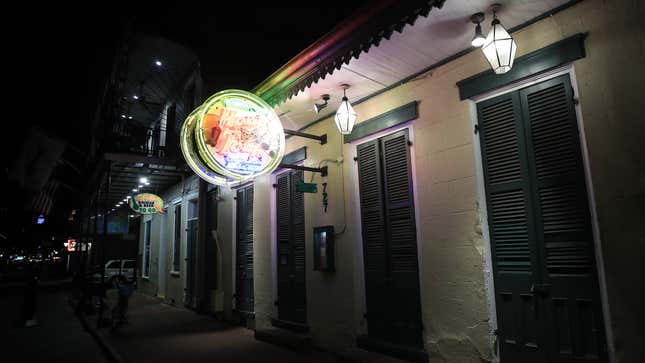New Orleans Has a Plan—at Least for Its Rat Population
Latest

Watching my beautiful, dysfunctional home state of Louisiana slowly wake up to the fact that it is right in the center of a covid-19 crisis is like being allowed to message the actors in a horror movie, sometimes pleading with them to be careful, other times just asking them if they’re okay.
According to a study out of the University of Louisiana at Lafayette, statewide, cases of covid-19 have grown faster in 14 days than anywhere else in the world. On March 23, officials reported 1,338 cases throughout the state, with 108 new cases in Orleans Parish alone, along with six deaths. Additionally, Governor Jon Bel Edwards warns that New Orleans is set to exceed its health care capacity by April 1. But despite the rising tide of new cases, Governor Edwards did not issue a stay at home order until Sunday, March 22. Now for the first time since Katrina, the French Quarter, a place that’s generally packed shoulder to shoulder and covered in a thin layer of bodily fluids and sugary hand grenade mix, is mostly empty except for roving hoards of hungry rats, used to a nightly buffet of discarded beignets and cast off Lucky dogs. Those rats, they are hungry in this new reality.
-

-

-

-

-

-

-

-

-

-

-

-

-

-

-

-

-

-

-

-

-

-

-

-

-

-

-

-

-

-

-

-

-

-

-

-

-

-

-

-








































